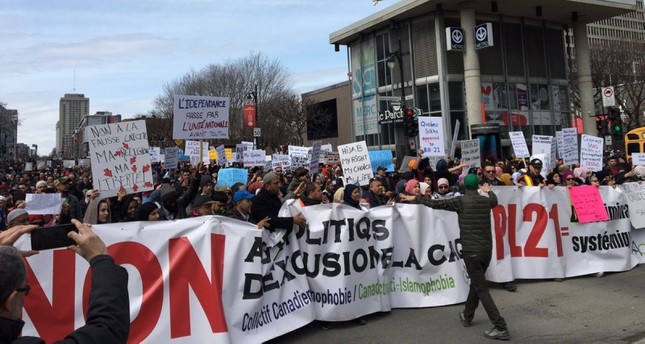Hawzah News Agency (Quebec, Canada) – A proposal to ban many public employees from wearing religious symbols is creating a fiery debate in the Canadian province of Quebec, where people are fighting to freely practice their religion — or to be free of it.
|
The measure introduced late last month would prohibit civil servants, teachers, nurses, bus drivers, lawyers and other people who interact with the public from wearing religious symbols while at work. It would apply to Sikh turbans, Christian jewelry and Jewish kippahs, but the focus of the controversy has been over hijabs worn by many Muslim women in Quebec. "The proposed legislation will affect Muslims more than other groups as they are the fastest growing religious group," said Nelson Wiseman, a political science professor at the University of Toronto. Muslims represent about 3% of Quebec's 8.3 million people. Thousands of demonstrators attended a recent march in Montreal to protest the measure, with some holding signs saying, "No one tells women what they can wear" and "It's what's in my head, not on my head, that matters." Even Prime Minister Justin Trudeau, who is from Montreal, has spoken ill of Bill 21: "It's unthinkable to me that in a free society we would legitimize discrimination against citizens based on their religion," he said. Christian, Jewish, Muslim and even secular groups across the province have denounced the measure, as have school boards, political parties and some municipal leaders. However, on Friday Montreal Mayor Valérie Plante said that while she personally opposes the bill, Montreal would not disobey it if it is passed. That said, next week city councilors will vote on a bipartisan declaration that argues Quebec is already secular and doesn't require additional legislation.
End |

